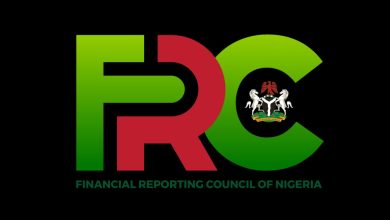Nigeria’s Debt Burden Reaches Record Level, Says NESG Report
Nigeria’s debt stress has reached record highs, a new NESG report shows.
It warned that despite recent reforms, the nation’s finances remain fragile and need urgent fixes.
Nigeria’s debt pressure has reached its highest level in history, according to a new report by the Nigerian Economic Summit Group (NESG). The study, released during the group’s annual conference in Abuja, revealed that the country’s Debt Burden Index peaked at 83.6 points between 2020 and 2023, reflecting the impact of massive borrowing, weak revenues, and debt service costs that surpassed total government income.
The index, a composite measure designed to capture the true scale of fiscal strain, described Nigeria’s debt structure as increasingly fragile and financially draining, calling for urgent policy reforms.
According to the report, Nigeria spent about $2.86 billion on external debt servicing as of August 2025, slightly below the $3.06 billion recorded in the same period in 2024. This accounted for 69 per cent of all foreign payments made within the period.
The NESG traced Nigeria’s debt history across four key phases from 2006 to 2025. The Post-Relief Compression phase (2006–2014) recorded low index levels, supported by debt cancellation and strong oil revenues. The Debt Crisis Acceleration phase (2015–2019) saw a sharp rise due to oil price shocks, increased borrowing, and weak revenue generation. The Fiscal Exhaustion phase (2020–2023) marked the peak of pressure, with COVID-19 borrowing and revenue collapse pushing debt servicing beyond total earnings.
The report noted a Tentative Reversal phase in 2024–2025, with the index easing to 70.9 points, and estimated at 69 points in early 2025, helped by the removal of fuel subsidy and foreign exchange reforms. Despite this, it warned that Nigeria’s fiscal challenges remain serious.
The group explained that the new index offers a more accurate measure of financial pressure than the debt-to-GDP ratio, as it combines solvency, liquidity, and revenue strength into one metric.
“Nigeria stands at a critical point in its fiscal management,” the report stated. “While headline debt figures seem moderate by global standards, deeper analysis shows a system weakened by low revenue, heavy debt service obligations, and exposure to foreign exchange risks.”
Although there was some improvement in 2024, the report cautioned that rising debt levels continue to limit development spending and threaten economic stability. It urged the government to reform its borrowing strategy, strengthen fiscal institutions, and overhaul the national revenue framework.
“The way out of Nigeria’s debt challenge is not austerity,” the report said. “It lies in transparent governance, productivity, and a fair fiscal system that supports sustainable growth.”
The Debt Burden Index was built using five internationally recognized indicators endorsed by the International Monetary Fund and the World Bank, including domestic and external debt ratios, and debt service relative to exports and revenue.
Beyond measuring debt levels, the index offers policy guidance for fiscal discipline. It recommends that new loans should be tied strictly to productive projects with measurable economic returns.
The NESG further called for stronger domestic revenue mobilization through improved VAT collection, enforcement of mining royalties, and digital property taxation. It also urged greater private sector involvement through public-private partnerships, equity-based infrastructure funding, and community-driven investments.
The report concluded by stressing the need for “net-worth-based” debt management, ensuring that any rise in borrowing is matched by growth in national assets. It also advised deeper institutional reforms to improve transparency, coordinate state-level borrowing, and promote rule-based fiscal governance.



